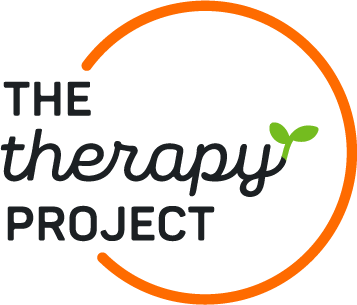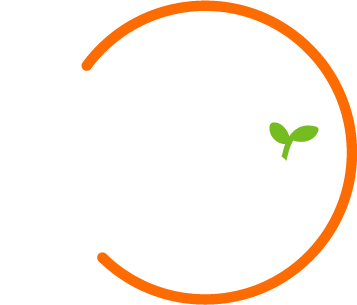On more than one occasion, I have worked with people who occasionally—very occasionally—experienced brief but intense outbursts or moments of anger that left them feeling guilty and ashamed.
These outbursts didn’t just affect them; they also impacted those around them.
In many cases, these issues with anger or frustration come hand in hand with difficulties in dealing with conflict. Let’s take a closer look.
Why Do We Struggle with Conflict?
The reasons vary from person to person, but there is often a common pattern.
Humans learn about the world throughout life, but what we learn in childhood lays a strong foundation.
That’s why, when looking at the early personal history of people who struggle with conflict, it’s common to find elements such as:
- One of their attachment figures had particularly violent, dramatic, or frightening reactions to any form of conflict.
- A household dynamic where problems or conflicts were never openly discussed, and everything was simply ignored until time made it disappear.
- There were “more important” issues at home (illness, financial problems, etc.), which led them to learn that expressing their own needs was something to be avoided.
People who struggle with conflict learned at some point that confronting others—whether by setting boundaries or asking for something—would only lead to more trouble than it was worth. So instead, they yield, they don’t ask, they don’t contradict, and they try to take up as little space as possible.
While these early experiences play a major role, our relationship with conflict is also shaped by other environmental factors, such as gender roles.
What Does This Have to Do with Anger or Sudden Rage?
When we don’t allow ourselves to express our pain or what bothers us. When we don’t set boundaries with those who hurt us. When we don’t ask for anything from others and take on everything alone.
We start accumulating pressure, like a volcano, a pressure cooker, or a balloon inflating more and more. The stress, pressure, pain, and discomfort build up—until they explode.
When our boss mistreats us, we end up doing most of the chores at home, and we go through life trying not to inconvenience anyone… Then, one day, we spill coffee on ourselves, and it wouldn’t be surprising if we shouted insults and smashed the cup on the floor.
What Can We Do?
The idea is simple: we need to recognize what is building up pressure so we can address it, reduce that pressure, and prevent it from leading to an explosion.
Emotional Expression and Identifying Needs
To address the things that are weighing on us, we need to be able to identify and express our emotions effectively in order to improve our situation—either by reducing or eliminating the things that harm us or by asking for and obtaining what benefits us.
To do this, we should:
- Recognize our emotional states, dissatisfaction, and stress levels.
- Identify our needs. What needs to change in my life to improve how I feel? What is overwhelming, hurting, or bothering me?
- Communicate those needs. This can take the form of:
- Asking for help.
- Distancing yourself from people or situations that harm you.
- Setting clear boundaries—with others and sometimes with yourself.
You Can Do It
Of course, if you struggle with conflict, the last step (Communicating) might feel the most challenging.
That’s why it’s important to understand that if you’ve spent your whole life avoiding conflict as much as possible, your body (and nervous system) will naturally react to the idea of facing it.
So, don’t be surprised if you feel nervous. Or if you feel strange. Or if you procrastinate. You’re learning something new—something that once felt scary or uncomfortable.
Embrace that initial discomfort because it’s a necessary part of the process. Don’t be too hard on yourself if you procrastinate—just keep going.
It may help to start with small steps—from asking a waiter for something to telling a loved one about a small thing that bothered you or a preference you’d like them to consider.
Emotional Regulation Matters in Anger Issues
In the steps of recognizing and identifying emotions, we find key elements for emotional regulation and anger management.
Many times (especially among men), we lack both the tools and the “permission” to listen to and express our emotions in an assertive way.
Learning to manage our emotions is essential to prevent them from building up and catching us off guard, leading to unnecessary problems.
You’ll find articles on the blog—like the one linked above or this one—that may help.
Conclusion
Today, we explored the connection between difficulties in facing conflict and problems with anger or spontaneous outbursts.
Sometimes, we learn early in life that conflict can be dangerous, too painful, or simply a taboo topic. From that point on, we keep everything inside, avoid burdening others with our needs, and overload ourselves with responsibilities and unresolved emotions.
This overload can sometimes lead to explosions of aggressive behavior that are completely out of place—affecting those around us and leaving us feeling ashamed, guilty, and regretful.
To break the cycle, we need to learn to tune into our emotional states, stress levels, and needs. Once we identify what’s affecting us, communicating it assertively and taking action will help us release pressure—so the volcano doesn’t erupt.
Many people seek therapy to improve their emotional regulation and their ability to face conflict. If this is something you’d like to work on, you can contact us here for in-person therapy in Valencia or online from anywhere in the world.








